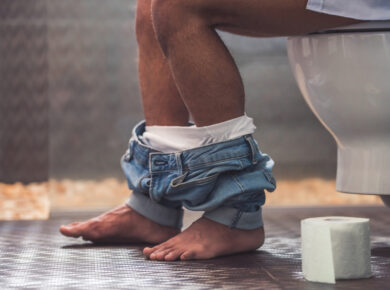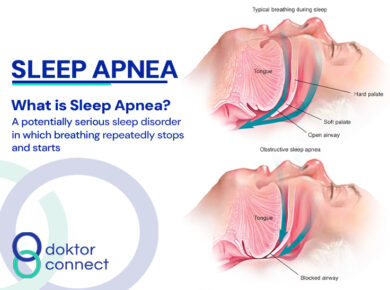Kidney stones refer to stones in the kidney; they can be prevented and treated. Most times ureteral stones are discussed together because they almost always originate in the kidney although they may continue to grow once they lodge in the ureter.
Urinary tract stones have been a part of the human condition for centuries; kidney and bladder stones have been found in mummies; some of the earliest documented medical texts and figures portray the treatment of urinary stone disease.
Kidneys are a pair of bean-shaped organs, located at the flank which helps to filter the blood and maintain fluid balance amongst other things. Each kidney is attached to a ureter, a tube that carries excreted urine to the bladder.
Watch this video to learn about Kidney stones. However, if you prefer reading, just scroll down.
How common are kidney stones?
Kidney stones occur in all parts of the world. The lifetime risk of developing a kidney stone is 2-5% in Asia, 8-15% for the west and 20% for Saudi Arabia. Peak incidence occurs in people aged 35-45, however, it can affect anyone at any age. It is three times more likely to occur in a man than in a woman.
Urinary tract stones in Nigeria have become more common, mimicking the increasing prevalence in the west. Approximately 80-85% of stones pass spontaneously, while about 20% require hospital admission. The recurrence rate after an initial episode has been projected at 35% in 5 years.
What can lead to a Kidney stone?
One of the most important causes is low fluid intake. Not drinking enough water can lead to the formation of a smaller volume of urine which is more concentrated and can lead to the formation of stones.
Other factors that can predispose one to have kidney stones include; climate, diet, sedentary lifestyle, obesity, diabetes, high blood pressure, pregnancy, or family history.
Types of Kidney stones
1. Calcium stones– about 75% of kidney stones. These can be Calcium oxalate, calcium urate, and calcium phosphate. They are caused by a variety of disorders such as increased gut absorption of calcium, hyperparathyroidism, low magnesium, etc.
2. Struvite (Magnesium Ammonium Phosphate)- 15% of kidney stones. Usually caused by chronic urinary tract infection with gram-negative urease-positive organisms that split urea to ammonium, which then combines with magnesium and phosphate to crystallize into calculus.
3. Uric acid stones– about 6% of kidney stones. Associated with high purine intake- e.g. organ meats or malignancy. Approximately 25% of patients with uric acid stones have gout. This is why Uric acid level is an important component of our premium wellness plan at Doktorconnect.
4. Cystine stones– about 2% of kidney stones, result from failure of kidney tubules to reabsorb cystine
5. Drug induced – e.g sulfa containing drugs, indinavir, atazanavir etc
Common Symptoms
What are the symptoms of kidney stones?
The symptoms depend on the stone sizes, the number, and the obstruction of the urinary tract. It can also be asymptomatic (without symptoms).
- Flank pain- this is primarily caused by dilation, stretching, and spasm because of acute ureteral obstruction. Acute renal colic is often described as worse than childbirth, broken bones, gunshot wounds, burns, or even surgery.
- Gross or microscopic hematuria.
- Nausea and vomiting.
- Fever suggests the possibility of a Urinary tract infection and you should consult with your doctor immediately so as to be investigated and treated accordingly. Remember, the doktorconnect app gives you 24-7 access to speak with a doctor and you get the first 30 days free.
Treatment Methods
Common Investigations done
It ranges from a Urinalysis, Full Blood Count, Electrolytes, Urea and Creatine, Calcium, Phosphorus, Parathyroid hormone. Imaging tests like X-ray, renal ultrasound scan, and CT scan to check for size, number, location, obstruction, and complications.
How do doctors treat kidney stones?
Treatment varies according to clinical presentation. The treatment focus is on managing symptoms and removing the stones. This varies between analgesia, rehydration, antiemetic, and an antibiotic; if the infection is present; medication to speed up the passage of the stones, and even surgical interventions- stent, percutaneous nephrostomy, extracorporeal shockwave lithotripsy, etc.
Prevention Tips
Six proven ways to prevent kidney stones
- Stay hydrated (drink about 3 litres of fluid) especially when engaging in activities that cause you to sweat a lot. You can tell how diluted your urine is by looking at its color, the darker it is the more concentrated it is.
- Reduce salt intake. The presence of too much salt in the urine prevents calcium from being absorbed from the urine to the blood. The lower the urine calcium the lower the risk of developing kidney stones. Therefore, reduce the intake of processed foods such as chips, canned soups, etc.
- Cut down on high purine food like organ meat as it can increase your uric acid levels.
- Limit alcohol intake because it can increase your uric acid levels.
- Less animal-based protein and more fruits and vegetables will reduce urine acidity making you less prone to developing kidney stones.
- Studies have also shown that taking high doses of vitamin c supplements long-term increases the amount of oxalate in your urine thus has been shown to increase the risk of developing kidney stones. This is why it is extremely important to not self-medicate with high doses of vitamin c.
Do not completely avoid food containing oxalates and calcium because they have other nutritional benefits and especially for post-menopausal women and other individuals who are at risk of osteoporosis. Create a balance and speak with a doctor for advice



